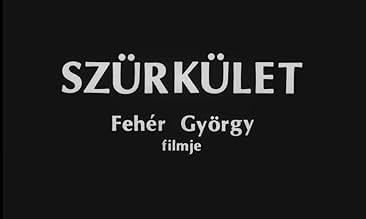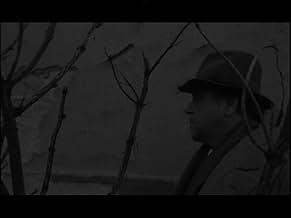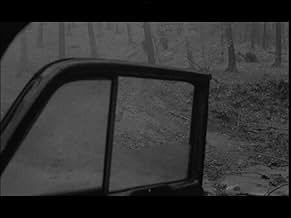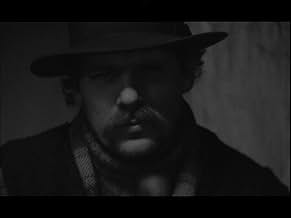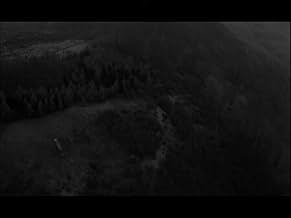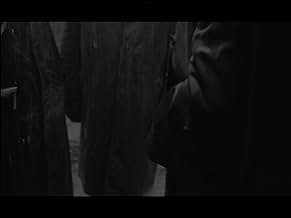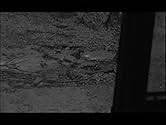IMDb-BEWERTUNG
7,2/10
1223
IHRE BEWERTUNG
Ein Polizist begibt sich in den Ruhestand, um den Mord an einem Mädchen aufzuklären.Ein Polizist begibt sich in den Ruhestand, um den Mord an einem Mädchen aufzuklären.Ein Polizist begibt sich in den Ruhestand, um den Mord an einem Mädchen aufzuklären.
- Auszeichnungen
- 1 Gewinn & 1 Nominierung insgesamt
Handlung
WUSSTEST DU SCHON:
- WissenswertesCinematographer Miklós Gurbán replaced János Kende. The few shots from Kende's work retained in the film were degraded to match the style created by Gurbán and director György Fehér.
- VerbindungenReferenced in Film Junk Podcast: Episode 935: Love Lies Bleeding (2024)
- SoundtracksZinzkaro
Georgian folk music (uncredited)
Performed by Vocal Ansambl Gordela (uncredited)
Taken from Werner Herzog's
Nosferatu: Phantom der Nacht (1979)
Ausgewählte Rezension
Ostensibly, a police procedural but completely bloodless; impossible to care any less about the story. If you find Tarr compelling, you can stop reading now and go watch it.
The issue here is by no means the relentless slowness (there are some very well blocked shots), it is that there is a payoff is well <50% of the time (e.g., the shot from the inside of the gas station, the shot of the car leaving the gas station, the long circling shot that laughably has the two detectives in a silly stare off). Everything visual in the film exists merely for the shot, leaving everything else (story, acting, telos, logic, music) out, which can be fine in principle. However, the music is bizarrely cut-and-paste, with a bad edit that includes a portion of Kate Bush's "Hello Earth" (which has the line, in German, "Give us more light"; maybe that's why it was chosen). The chunk of music, which falls into the movie again and again verbatim, is not even well cross-faded; it's startlingly bad and amateurish in a film that at least knows how to block a shot but, again, this seems symptomatic of merely putting visuals on a screen with no sense of filmic phenomenology. Thus, the acting is either ill-suited (one can't exactly say bad) or non-existent, but that is above all for the sake of the film's look, of course. I think the most iconic performance in the film is statue of a bird.
Like Tarr, Feher seems to think that lingering accomplishes something and the very worn out, completely apt comparison to Tarkovsky illustrates a billion-fold what's wrong here. You also get some domestic violence apologetics and creepy girl fondling, ostensibly to provide the red herring in the whodunnit. The domestic violence is completely unprepared (and reminiscent, almost to the point of homage, of the Stalker's wife stupid fit on the floor) and seems, like the girl-fondling, a little to "I want this in the film" from the director.
But perhaps I've misunderstood that this is supposed to be a comedy. I definitely laughed more than once (the scene with the forensic psychologist, for instance). Like Tarkovsky's Mirror (my favorite film) or Gherman's Hard to be a God, it's a good idea to watch this film with no preconceptions; the difference from the Russian films is one's patience is almost never rewarded.
If you've never seen anything like this, and you didn't just hate it, you really should treat yourself and go see something actually like it (and I don't mean something by Tarr).
The issue here is by no means the relentless slowness (there are some very well blocked shots), it is that there is a payoff is well <50% of the time (e.g., the shot from the inside of the gas station, the shot of the car leaving the gas station, the long circling shot that laughably has the two detectives in a silly stare off). Everything visual in the film exists merely for the shot, leaving everything else (story, acting, telos, logic, music) out, which can be fine in principle. However, the music is bizarrely cut-and-paste, with a bad edit that includes a portion of Kate Bush's "Hello Earth" (which has the line, in German, "Give us more light"; maybe that's why it was chosen). The chunk of music, which falls into the movie again and again verbatim, is not even well cross-faded; it's startlingly bad and amateurish in a film that at least knows how to block a shot but, again, this seems symptomatic of merely putting visuals on a screen with no sense of filmic phenomenology. Thus, the acting is either ill-suited (one can't exactly say bad) or non-existent, but that is above all for the sake of the film's look, of course. I think the most iconic performance in the film is statue of a bird.
Like Tarr, Feher seems to think that lingering accomplishes something and the very worn out, completely apt comparison to Tarkovsky illustrates a billion-fold what's wrong here. You also get some domestic violence apologetics and creepy girl fondling, ostensibly to provide the red herring in the whodunnit. The domestic violence is completely unprepared (and reminiscent, almost to the point of homage, of the Stalker's wife stupid fit on the floor) and seems, like the girl-fondling, a little to "I want this in the film" from the director.
But perhaps I've misunderstood that this is supposed to be a comedy. I definitely laughed more than once (the scene with the forensic psychologist, for instance). Like Tarkovsky's Mirror (my favorite film) or Gherman's Hard to be a God, it's a good idea to watch this film with no preconceptions; the difference from the Russian films is one's patience is almost never rewarded.
If you've never seen anything like this, and you didn't just hate it, you really should treat yourself and go see something actually like it (and I don't mean something by Tarr).
Top-Auswahl
Melde dich zum Bewerten an und greife auf die Watchlist für personalisierte Empfehlungen zu.
- How long is Twilight?Powered by Alexa
Details
- Laufzeit1 Stunde 45 Minuten
- Farbe
- Seitenverhältnis
- 1.66 : 1
Zu dieser Seite beitragen
Bearbeitung vorschlagen oder fehlenden Inhalt hinzufügen



